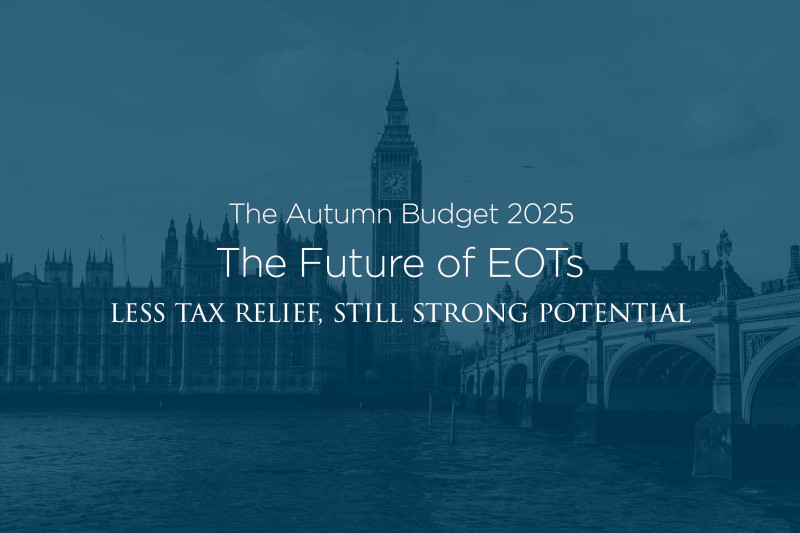The Future of EOTs: Less Tax Relief, Still Strong Potential

The Autumn Budget on 26 November 2025 introduced a number of new considerations for business owners. A major and unexpected change was the reduced Capital Gains Tax (“CGT”) relief on sales to Employee Ownership Trusts (“EOTs”).
Since the introduction of EOTs over a decade ago through the Finance Act 2014, EOTs have become an attractive route for business owners seeking to exit and also considering succession planning. One desirable appeal of EOTs was the 100% relief on CGT making it a beneficial and tax-efficient mechanism for an exit strategy. This made EOTs a desirable option for business owners who wanted to take a step back while also ensuring their business preserves its independence, culture, direction and allows for the business to remain in trusted hands.
While the Autumn Budget reduced the CGT relief available, it did not affect the core principles of selling to an EOT, and it is worth remembering that an EOT may still be a viable option for exit. A sale to an EOT can be significantly more streamlined than a traditional sale to a third party and there may still be many other commercial factors that could make an EOT the right fit. Likewise, there are instances where an EOT will not be appropriate. EOTs are still relatively tax efficient, so while the CGT relief is reduced, business owners will still benefit from an overall lower rate in comparison to that applicable on a third-party sale.
The sale to an EOT is still an attractive option for owners looking to make an exit, albeit the tax landscape is now slightly more equal. Importantly, it is not the only viable option. Business owners still have a range of exit strategies available to them each offering different advantages depending on their objectives, financial position and desired legacy.
To understand more about Employee Ownership Trust, or other exit strategies for your business going forward, please contact our Corporate Team by email at info@leathesprior.co.uk or by telephone at 01603 610911.


